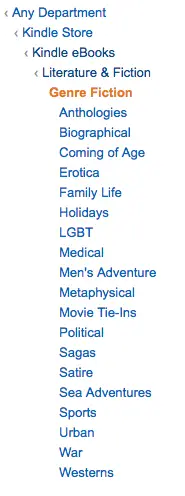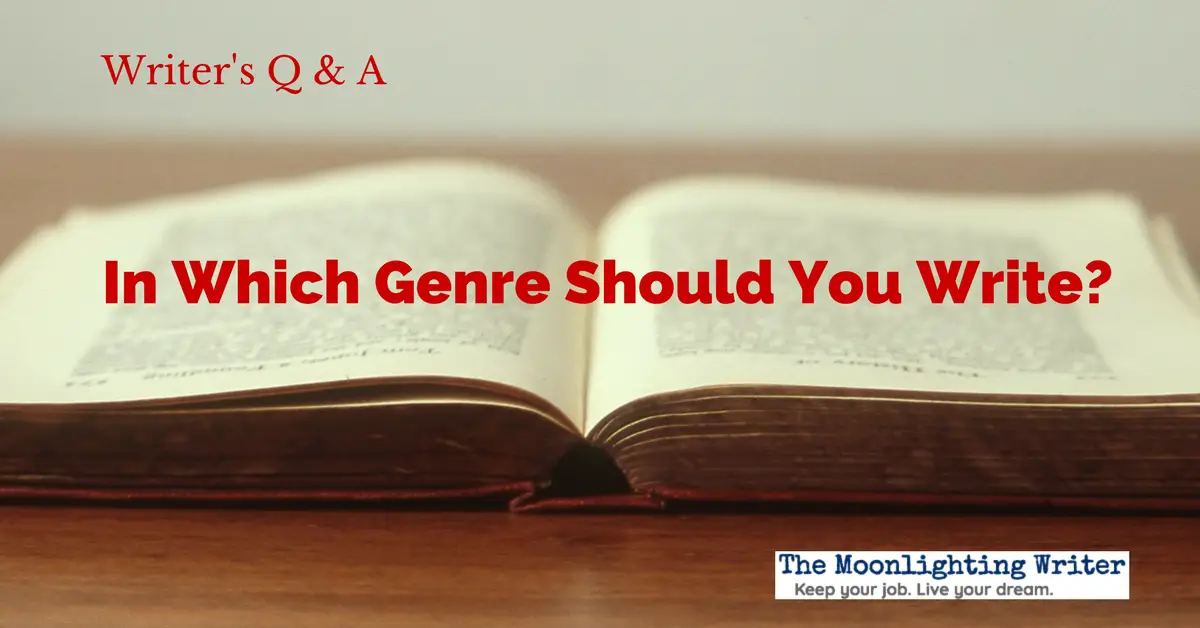Sooner or later every author faces the question: in what genre do you write?
It can come from friends and family when they find out you’re a writer, but most often, it seems to come from yourself in the form of, “In what genre should I write?”.
It’s largely a personal choice, but before we get into that …
What Is Genre?
Google defines “genre” thusly:
gen·reˈZHänrə/nounnoun: genre; plural noun: genres
There are other definitions out there, but they all say pretty much the same thing — the genre of a book is describe by its subject matter, writing style, and even presentation factors.
The two broadest distinctions are fiction and nonfiction.
These can be broken down further into specific categories based on general topics, and maybe the best place to find the current standard is the Kindle marketplace:

Assuming we’re interested in writing fiction, we can drill down into “Literature & Fiction” to see still-broad subcategories:

Some of these, like “Horror” and “Historical Fiction” that are specific enough to be considered genres on their own. But if we click into “Genre Fiction,” we find other, more detailed genres:

There are other breakdowns you can find, but no one knows the modern book market better than Amazon. And the point is, there are enough genres to appeal to all tastes.
So What Should YOU Write About?
Knowing the basic genres is one thing, but deciding which one to tackle is a different story.
There are several factors that can go into your determination:
- What types of books do you like to read?
- What types of books would you enjoy writing?
- Which subjects interest you?
- What’s your experience level?
- Are you going to use a pen name or your real name?
- Do you like to do extensive research for your writing?
- What is your primary motivation … telling a specific story or making money?
Some of these may seem unrelated to genre selection, but they’re not.
For instance, if you’re only going to write using your real name, then have to consider if your choice of genre will affect your reputation. An established children’s author might run into some troubles if her byline suddenly starts popping up on the covers of erotic fiction.
And, if your primary consideration is maximizing your potential audience and income from your writing, then you’ll probably want to target big genres with tons of rabid readers.
But each genre comes with tradeoffs. The popular niches are going to be super-competitive. Historical fiction requires a lot of research. Books about cricket-playing alien vampires may have an ardent fan base, but it will be minuscule in comparison to others.
There is money to be made in every genre — otherwise, Amazon wouldn’t bother listing them. The financial success you’ll ultimately achieve from writing will be determined by scores of factors, which makes genre a bit less important in the grand scheme if money is your motivator.
Most writers, especially those early in their journeys, will be best served to pick genres that they enjoy reading or that they think they would enjoy writing. After all, you’re going to be strapped to that keyboard for 50,000-150,000 words, and it will be utter drudgery if you don’t like what you’re doing.
